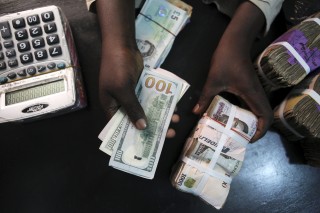On Wednesday, the Nigerian Naira fell against the US Dollar to N334.50 at the Interbank Foreign Exchange market, representing another all time low for the Naira. This comes barely a day after the Central Bank of Nigeria’s Monetary Policy Committee increased interest rates in order to attract foreign investors to the country.
This also comes a month after the CBN introduced a new exchange rate policy that allowed the Naira to float freely, by allowing the forces of demand and supply to determine the exchange rate of the currency.
Since the fall of oil prices in the global market, Nigeria has been struggling to save its currency from depreciating further. In an attempt to save the economy, the government imposed stringent monetary policies, which weakened the currency further, unfortunately.
According to foreign exchange traders who spoke with Reuters, “investors were pushing the currency lower to test the limit of how far it could fall, given a spread of almost 12 percent between the official and black market Naira rates.”
Some economic experts in Nigeria have said that the depreciation is not as a result of the increase in interest rate but due to the effect of the forces of demand and supply determining the rate, which is what the CBN wants. So we can confidently say that the Naira is fully floating.
The fluctuation of the exchange rate of the Naira needs to be addressed immediately by the CBN in order to boost investor confidence in the country again. No investor will want to work in an economy where the currency is unstable as this makes assessing the risks involved more difficult than usual.








